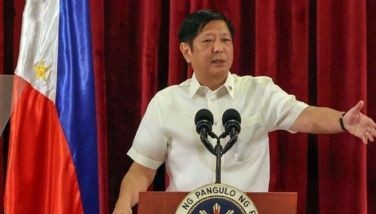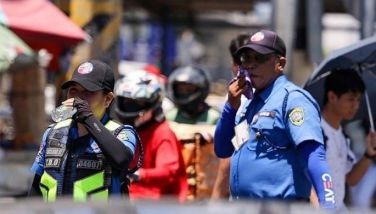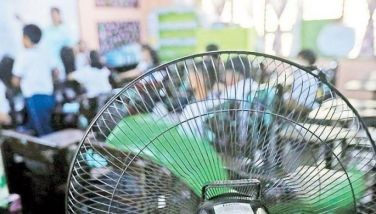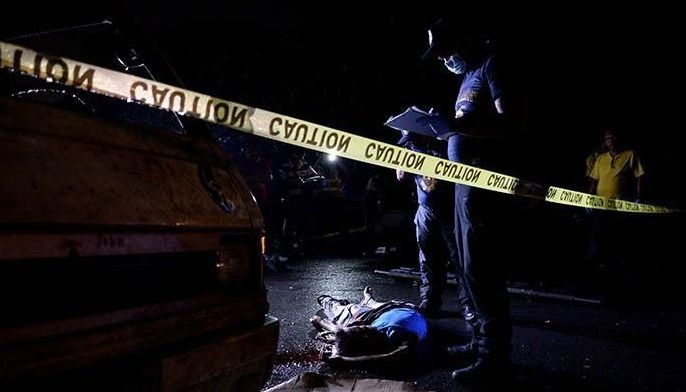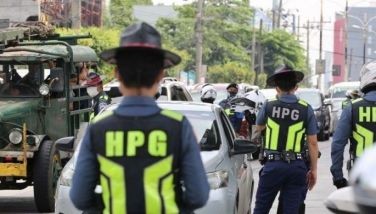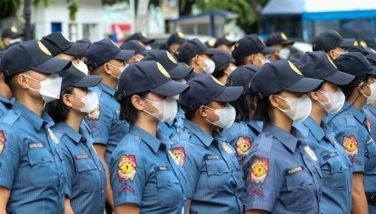Duterte in East Asia: Good news or strategic success

An analysis on the Philippines' bilateral relations with Japan and China
Earlier in the Duterte administration, many of the president’s supporters asked the rest of the country to look past the president’s alarming words and measure him, instead, by his actions. Just weeks after the inauguration, there had been no concrete policies or partnerships to evaluate, only a great deal of rhetoric from Malacañang. Four months into the administration, however, and to President Rodrigo Duterte’s credit, enough wheels have been set into motion that Filipinos and foreigners alike have taken notice and begun to respond.
The only question is whether or not these wheels are going in the right direction. Despite the barrage of statements, the Office of the President has avoided fixing its positions on any foreign policy issue or laying out an encompassing vision of what it would like to accomplish through diplomacy. We do not yet have a clear, Duterte-era counterpart of India’s “Look East” policy or America’s “Pivot to Asia” that forms a distinct guideline for understanding and measuring the president’s performance. Thus, while the president’s trips to Beijing and Tokyo are replete with positive moments, they cannot yet be counted as strategic successes.
The Office of the President has avoided fixing its positions on any foreign policy issue or laying out an encompassing vision of what it would like to accomplish through diplomacy.
Strategic success in Tokyo
Duterte’s trip to Japan provides a great example of the difference between simple gains and strategic successes. The Philippine delegation brought home good news, as both the Philippines and Japan are committed to strengthening the relationship. There were big-ticket investment promises from the Japanese private sector and, very productively, agreements on Tokyo’s continuing support to the Philippine Coast Guard and the Armed Forces of the Philippines (AFP). Yet, the media highlight of the visit was not economic, but personal: a photograph of Japanese Prime Minister Shinzo Abe raising his fist in the signature Duterte style.
The Philippine delegation brought home good news, as both the Philippines and Japan are committed to strengthening the relationship.
From the president’s perspective, this is a meaningful gesture from Abe. Abe skillfully sidestepped Duterte’s problems with other foreign governments and affirmed Japan’s support for this administration’s efforts. No wonder the president called him “a very courteous man.” With these gestures extended, the Philippines and Japan smoothly signed agreements that affirmed the two countries’ strategic partnership, and Duterte himself said he would stand by Japan in its own maritime dispute.
If not for Japan’s careful diplomacy over the past few months, its strong relationship with the Philippines could very well have faltered. After all, the president has been vocal about opening new doors with China, to the extent of downplaying the Hague ruling that condemned China’s activities in the West Philippine Sea. Japan, having its own disagreements with China in the East China Sea, would be concerned about possible changes in policy in Manila. Moreover, Japan and the United States are also treaty allies, and so Duterte’s avowed dislike of the United States risks could have an impact on Japan’s ability to rely on the network of Pacific allies for support.
Japan, having its own disagreements with China in the East China Sea, would be concerned about possible changes in policy in Manila.
However, while Duterte could rail against Western “disrespect,” Japan gave him no reason to treat their relationship the same way. Instead, the president got the respect he has demanded, and Japan obtained important reassurances over the shape of its economic and defense relationship with the Philippines. The president got a simple gain, but Abe, it seems, got a strategic success.
Good news in Beijing
Duterte also returned with good economic news from Beijing. For its part, China has been steadily working toward its own regional economic integration strategy, called One Belt One Road (OBOR). The OBOR concept aims to rebuild China at the center of the world’s trading lanes; as China’s neighbor, the Philippines has hoped to be in a link in the China’s trade chain.
During Duterte’s trip to Beijing, he was able to receive promises of new financing available to the Philippines for its infrastructure investments, that would ostensibly be part of that broader effort to link together trade routes and boost China’s overseas infrastructure firms. By smoothing over disputes with China, the Philippines had an opportunity to obtain a new source of financing and open a large new market for its own exports. At first glance, this could be a strategic success for both countries.
By smoothing over disputes with China, the Philippines had an opportunity to obtain a new source of financing and open a large new market for its own exports
Unlike the Philippines’ continuing relationship with Japan, however, the government’s new ties with China form a new, untested phase in the relationship. Thankfully, China has shown some good will by no longer preventing Filipino fishermen from entering Scarborough Shoal. This is a sign that many have wanted for China to begin to demonstrate that it can be a constructive partner in the bilateral relationship.
Untested as this new phase is, the downsides, if any, have yet to appear. The most obvious downside would be that these promises do not materialize or that, if they do, they are easily taken away the next time the two countries have a falling out. Because business and politics are more integrated in China than in other countries, political tiffs can quickly have economic consequences.
Untested as this new phase is, the downsides, if any, have yet to appear.
This is not an empty concern. Just last week, international news reports held that China’s dislike of South Korea’s deployment of a missile-defense system were behind the Chinese government’s decision to curb the number of tourists to South Korea by more than 20 percent. Of course, the Philippines experienced the same when China banned Philippine bananas and discouraged tourists from visiting not even five years ago. These “gifts” from China should therefore be considered good news, not strategic success.
Crafting a vision for foreign policy
Overall, the Duterte administration should move beyond good news and work toward crafting an encompassing vision of its foreign policy. It must start by deciding what it wants to and can accomplish in six years time. Only then can Duterte seek strategic success with both the Philippines longstanding friends and untested partners.
Dindo Manhit is the president of Stratbase-Albert Del Rosario Institute (ADRi) for Strategic and International Studies.
- Latest
- Trending
















